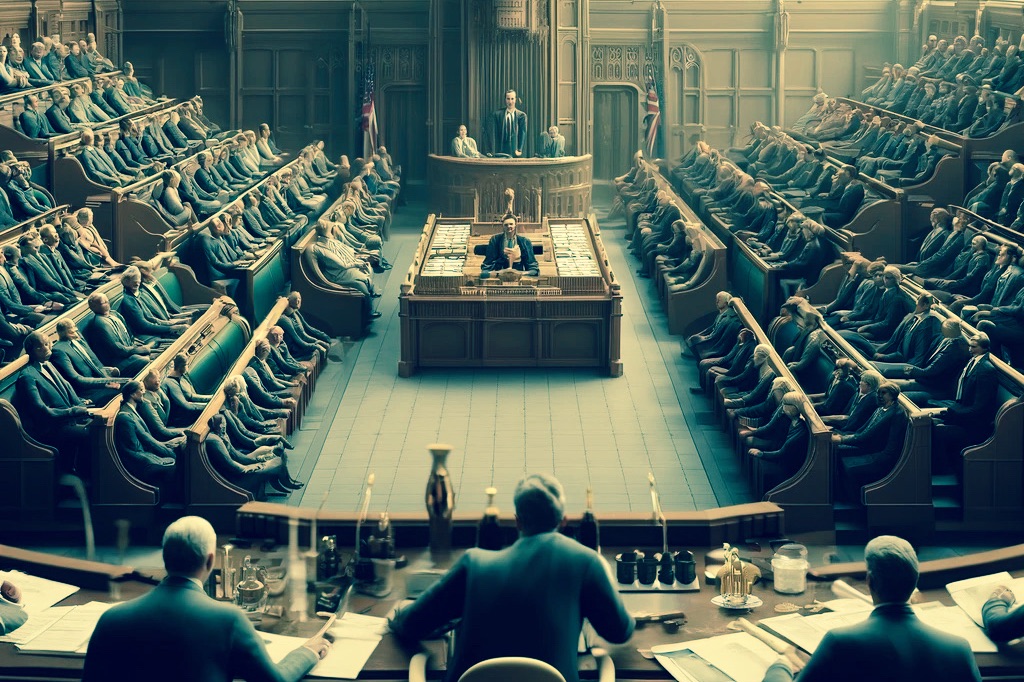
By Laury Echavarria.
Performing Politics: Beyond Institutions and Individuals
Politics is a dynamic and multifaceted process that extends far beyond government institutions and official roles. It involves a wide range of actors, both formal and informal, who contribute to shaping society through their actions, decisions, and expressions. While traditional notions of politics often emphasize parliaments and councils, politics is equally performed by everyday individuals and groups who influence political issues, whether passively or actively (Smith, 2023).
The Role of Formal and Informal Political Actors
Formal political actors, such as politicians, government officials, and institutions, engage in politics through policy-making and governance. As discussed in Block 1 (Week 1: What is politics?, 2024), these actors operate within structured spaces like parliaments and councils, wielding power to shape societal norms and laws. However, politics is not confined to these traditional actors or spaces.
Unconventional actors, such as activists, artists, and protest groups, often challenge political norms from outside these institutions. A powerful example is Pussy Riot’s 2012 activism in Russia, where their artistic protests highlighted political issues and sparked global discussions (Week 2: Who does politics?, 2024). These nontraditional acts of political expression demonstrate that politics can be performed in creative, subversive, and impactful ways.
Politics Across Spaces: From Institutions to the Streets
Politics unfolds in diverse spaces, ranging from government buildings to street corners and digital platforms. Block 1 explores how political acts take place in both expected venues, like the House of Commons, and unexpected ones, such as street protests or online forums. Even graffiti, often dismissed as vandalism, has been recognized as a form of political performance, blurring the boundaries between art and activism.
Everyday Acts as Political Engagement
Ordinary individuals perform politics through their everyday actions. Voting is the most direct and recognized example, representing focused and active political engagement. However, politics also occurs in subtler ways, such as participating in community meetings or using social media to advocate for causes. For instance, the 2013 case of the “kissing boys” in Morocco sparked public protests in support of the teens, illustrating how personal acts can carry profound political significance.
The Digital Era and the Evolution of Political Participation
In the digital age, the nature of political participation has transformed. Social media and online platforms have reshaped how individuals engage with and perceive political issues, making it easier for anyone to voice their opinions. However, this democratization of expression comes with challenges, including the spread of misinformation, the creation of echo chambers, and the rise of sensationalism, complicating the landscape of political discourse in a post-truth era.
Politics in Everyday Social Acts
Politics is embedded in every social act, as communication and social interaction inherently involve political dynamics. Language, a fundamental aspect of communication, plays a critical role in shaping political meaning. As highlighted in Block 1, even routine actions, such as buying groceries, involve political engagement by interacting with regulated systems and contributing to taxes. These seemingly mundane acts are, in fact, political performances.
Politics as a Way of Life
Politics permeates all aspects of life, from formal governance to informal, everyday actions. Even without holding official roles, individuals participate in meaningful political activities through their choices, actions, and interactions. This reinforces the idea from Block 1 that politics is not limited to institutions—it is a part of the fabric of daily life, woven into the social and cultural acts that define human existence.
References
• The Open University (2024) What is politics? Who does politics? Where is politics done? And how do we study politics? Milton Keynes: The Open University, Block 1.
• Pussy Riot: a punk prayer (2013) Directed by M. Pozdorovkin and M. Lerner. [DVD]. Russia/United Kingdom: Roast Beef Productions.
• Smith, D. (2023) ‘Political citizens,’ in S. Newcombe. Milton Keynes: The Open University, pp. 129.
• Heywood, A. (2013) Politics. 4th edn. London: Palgrave Macmillan.
